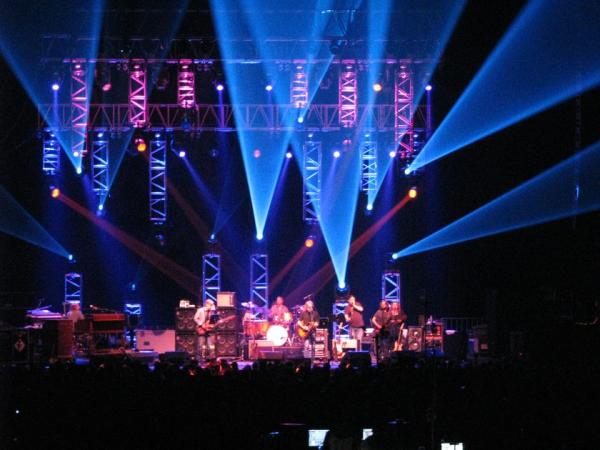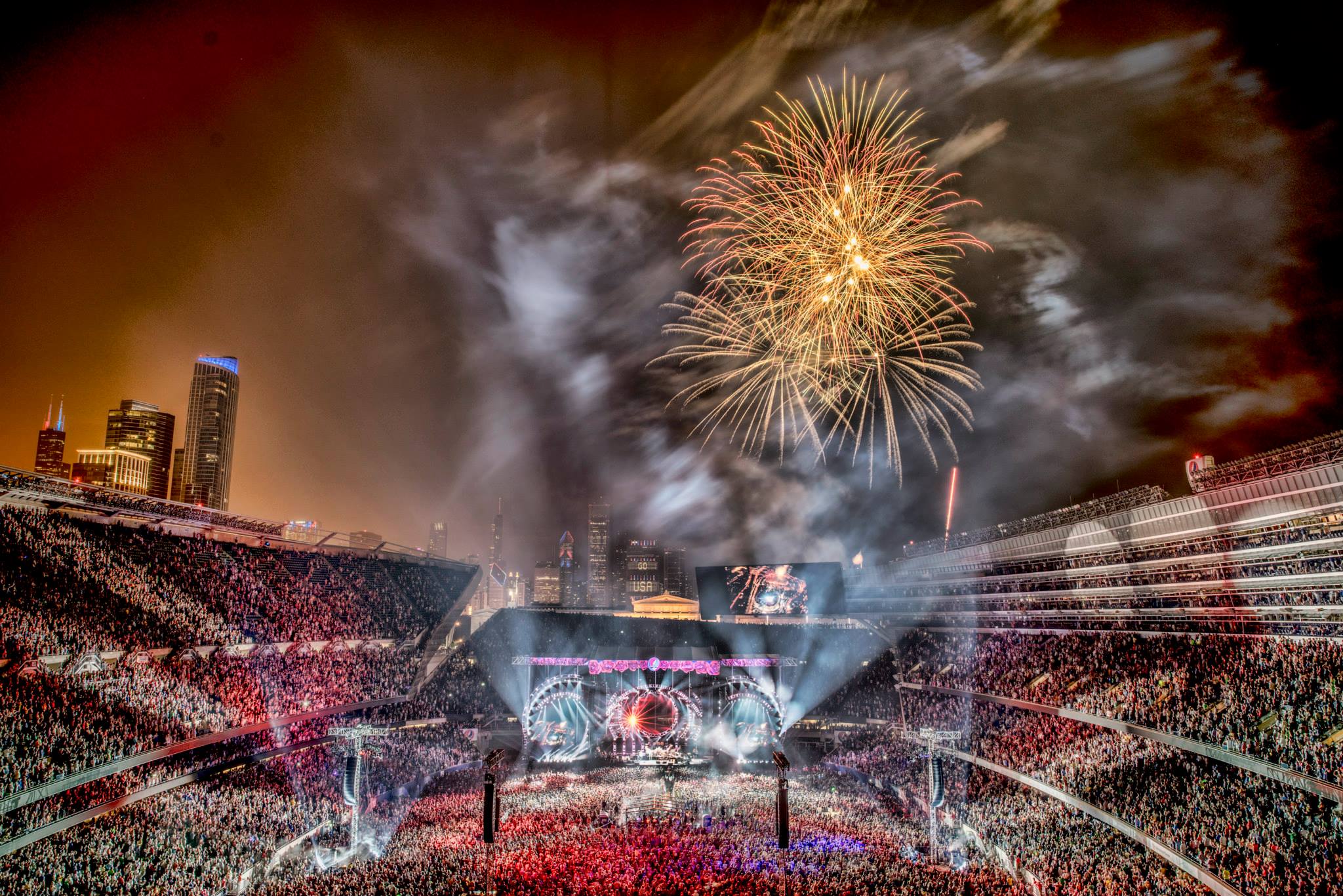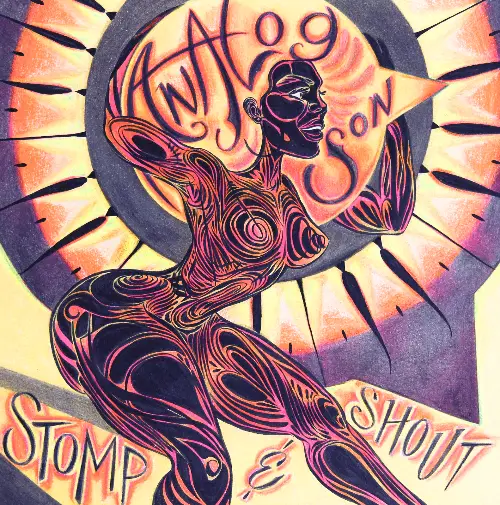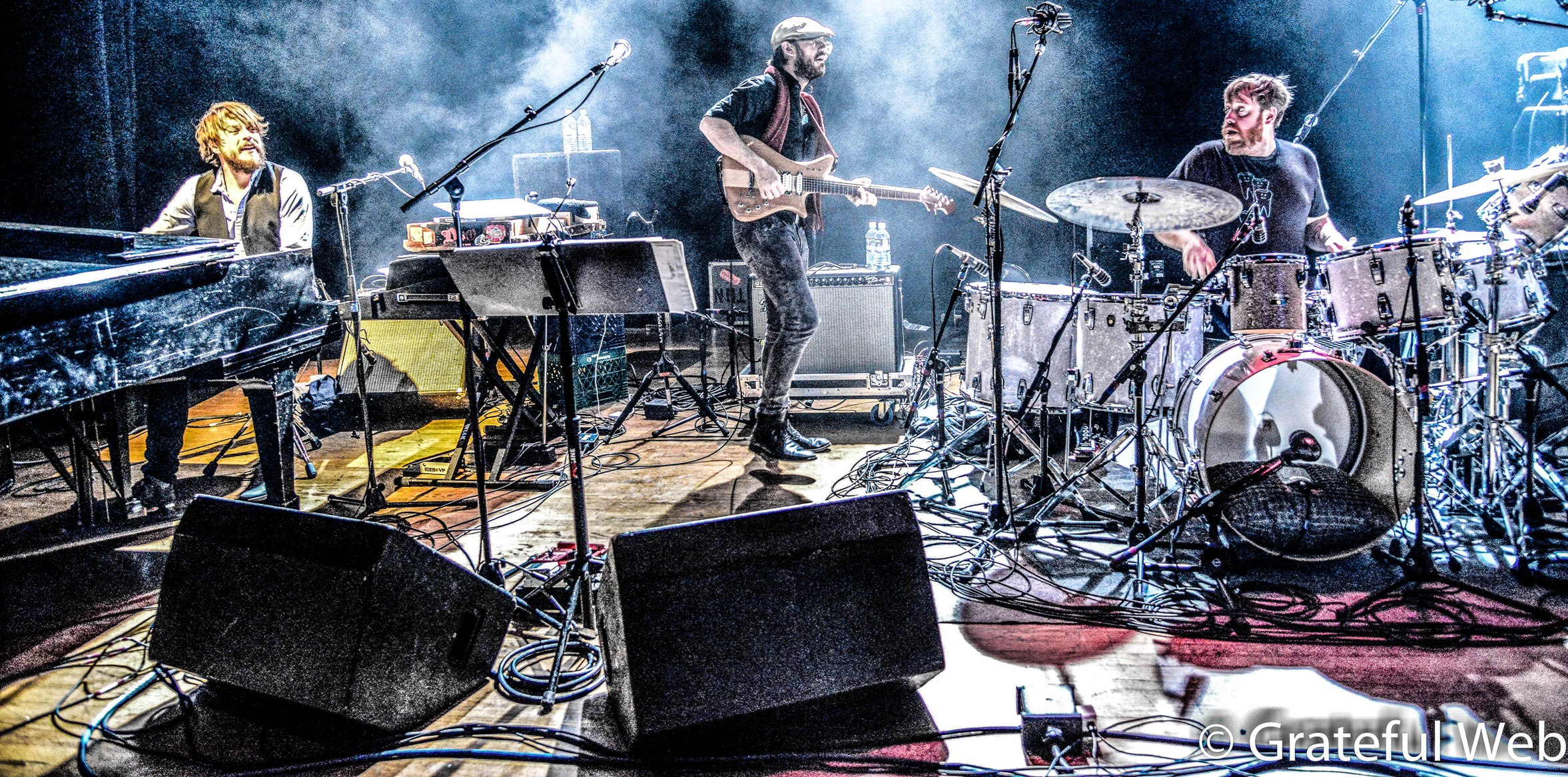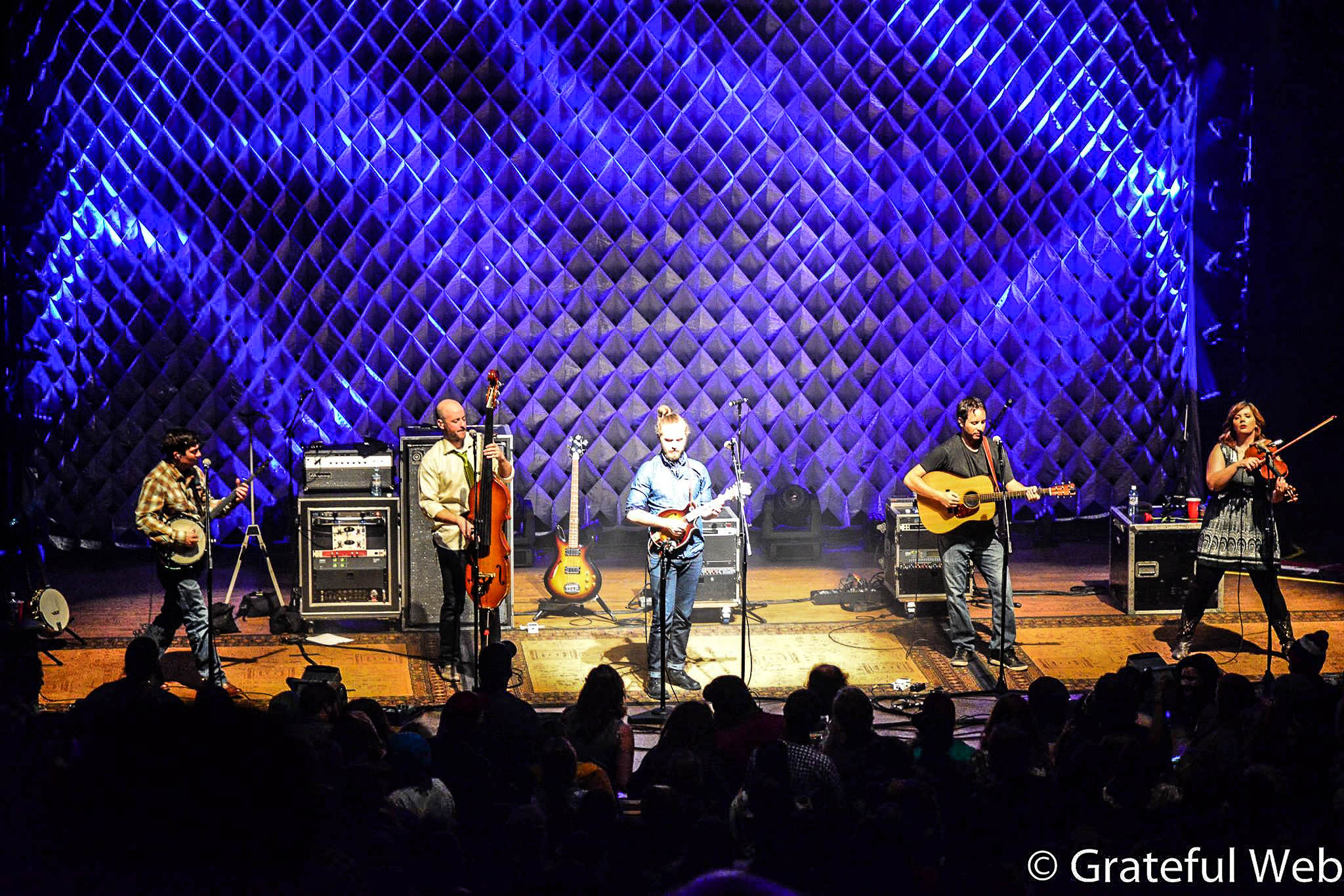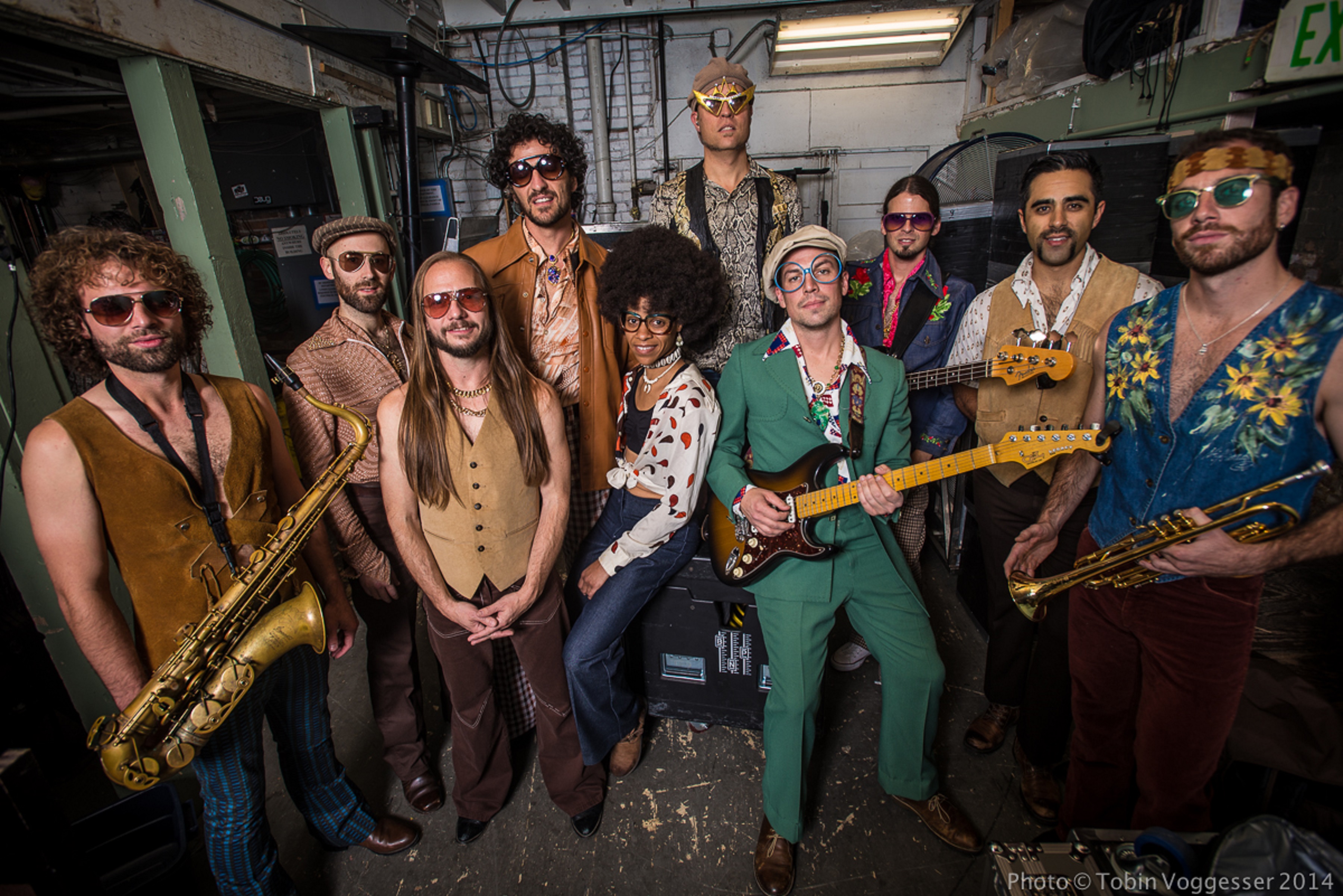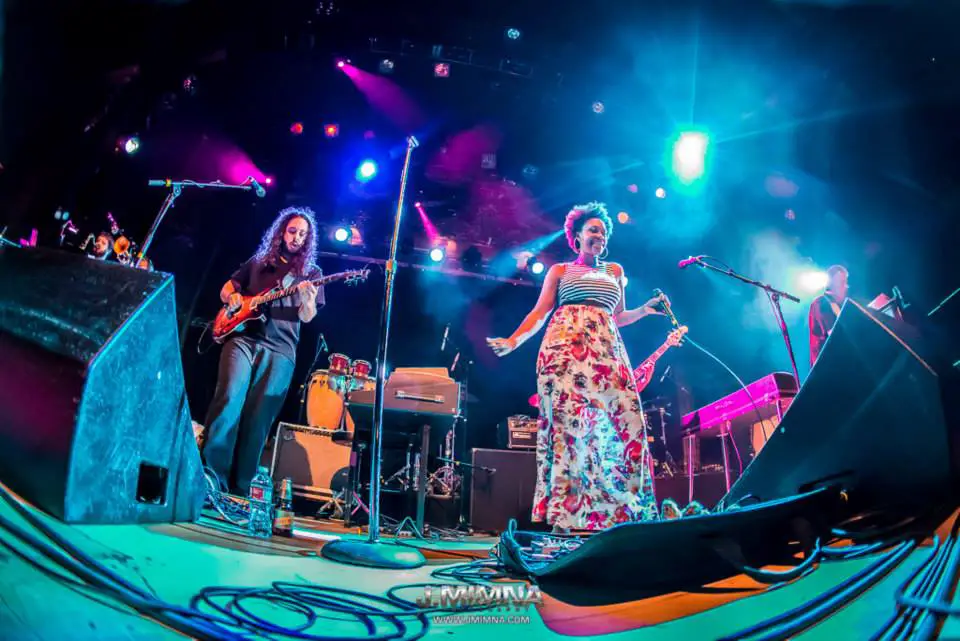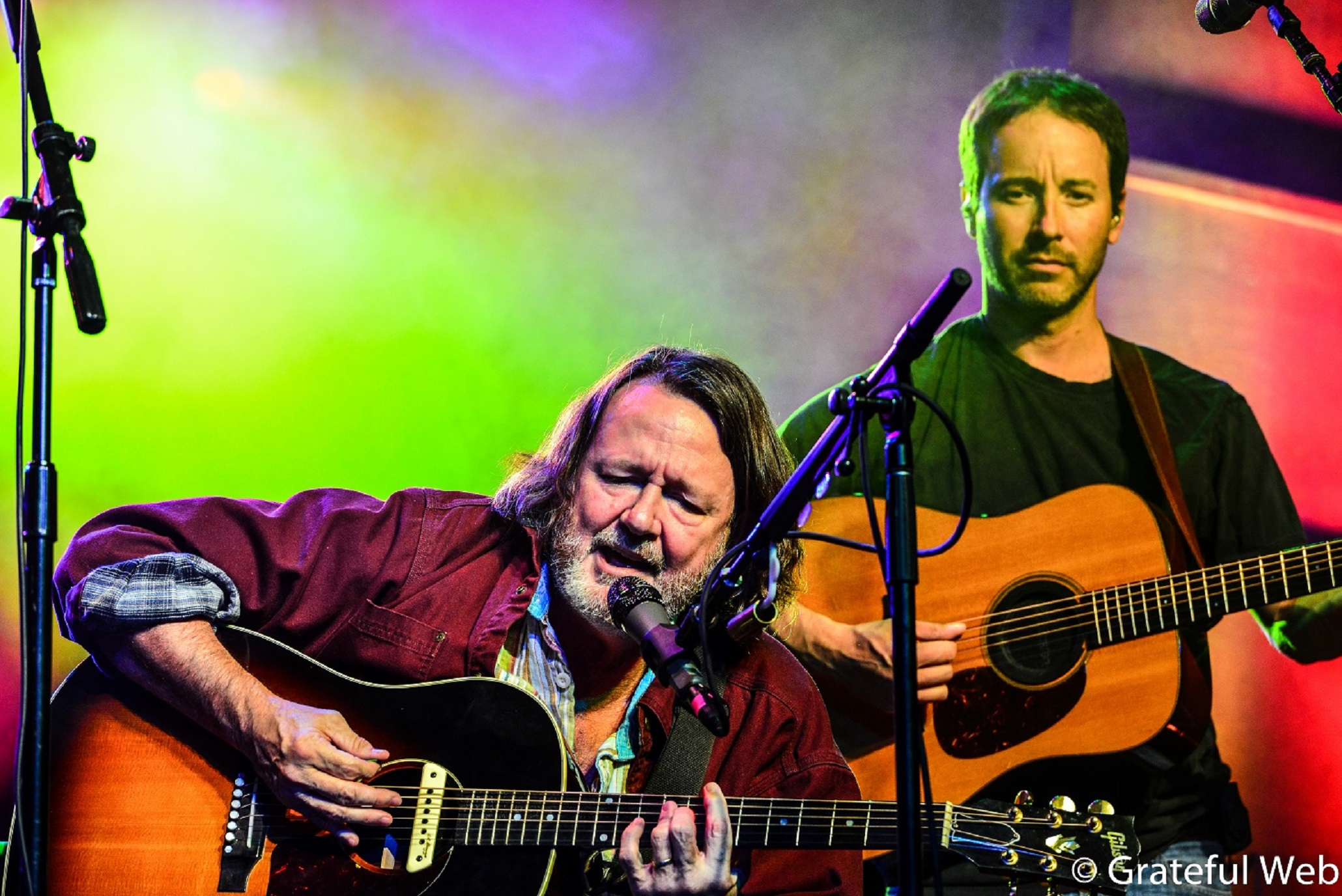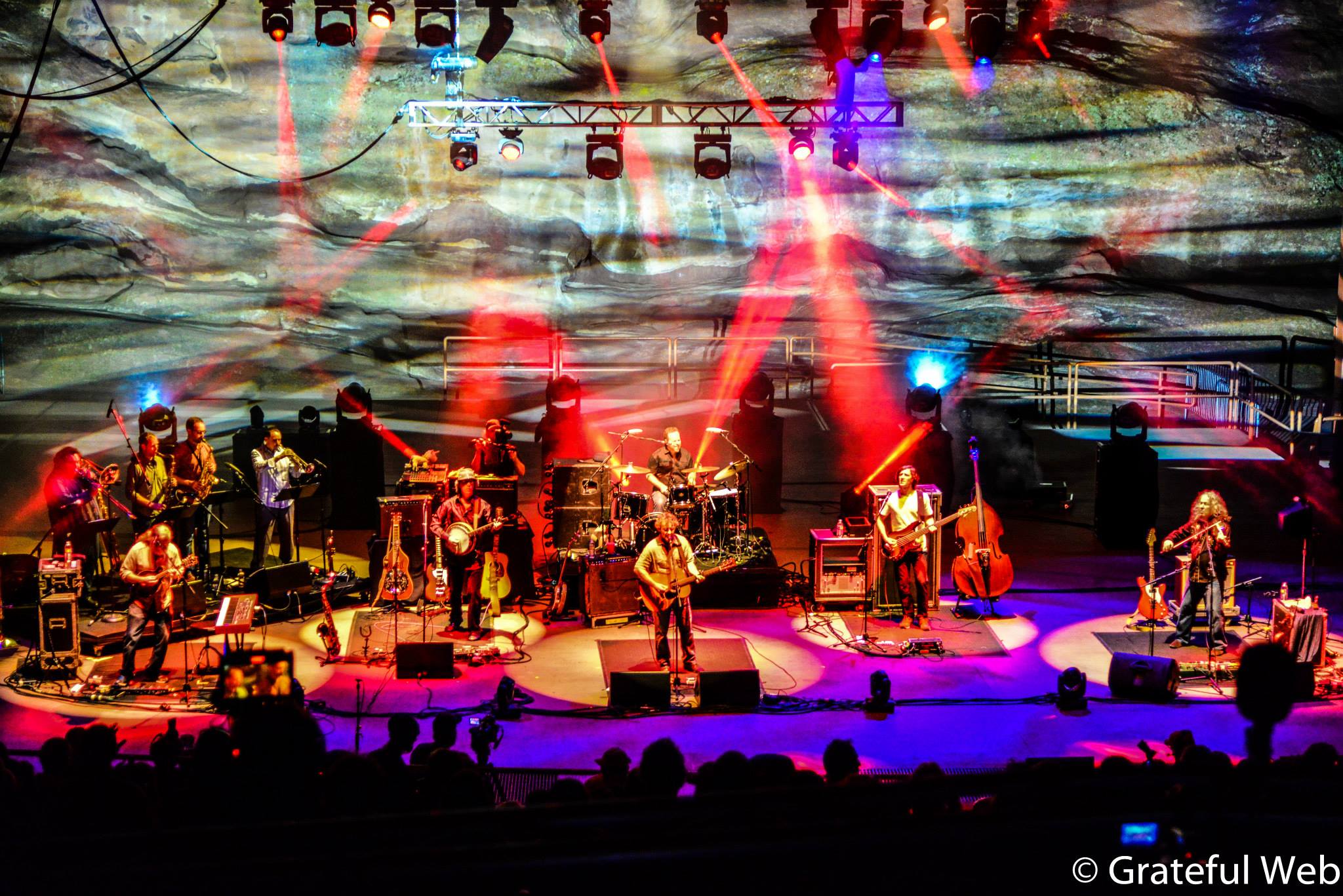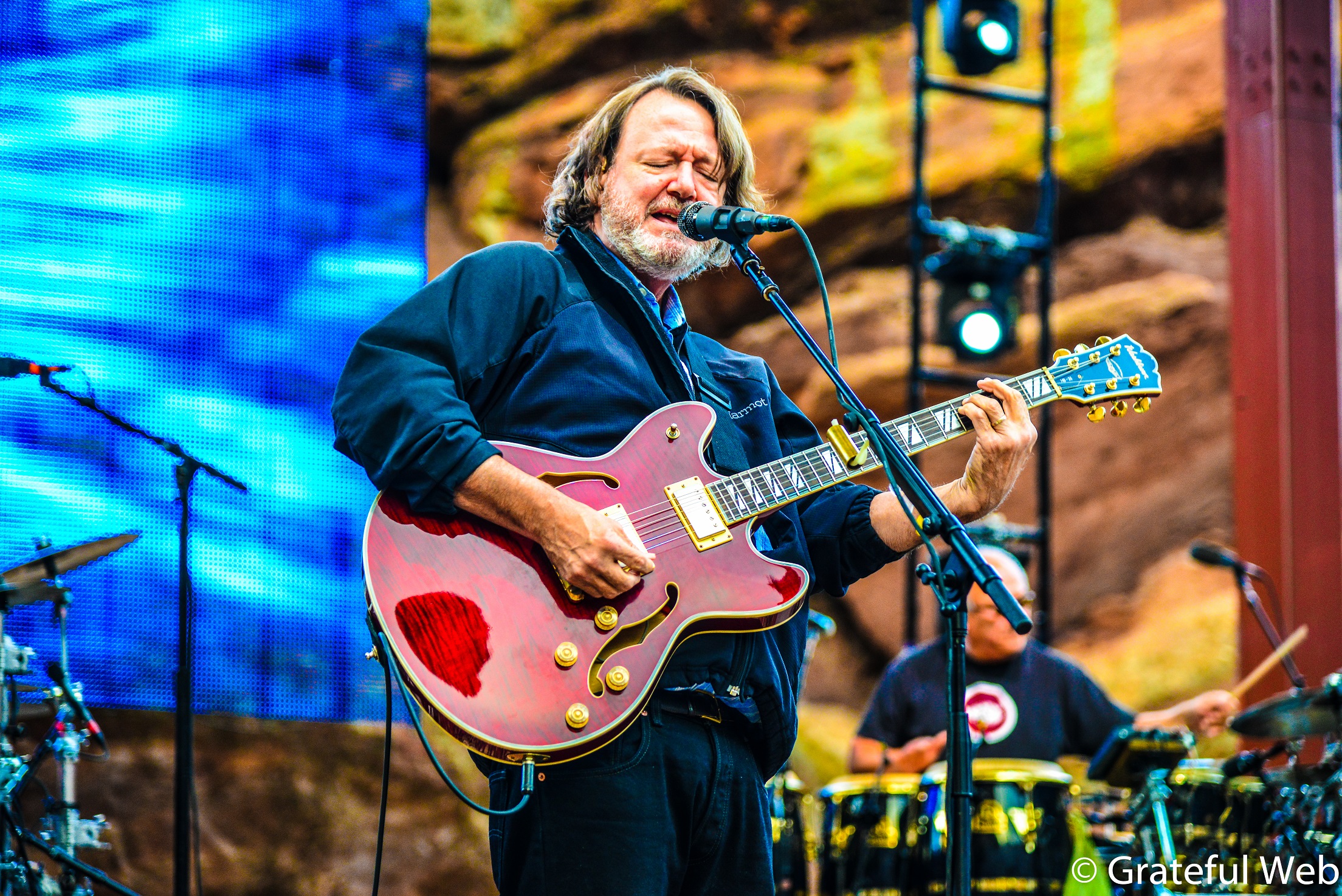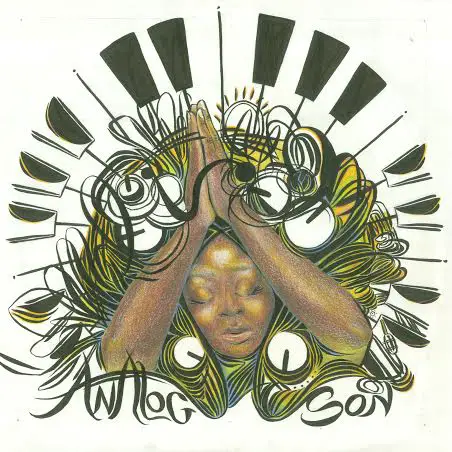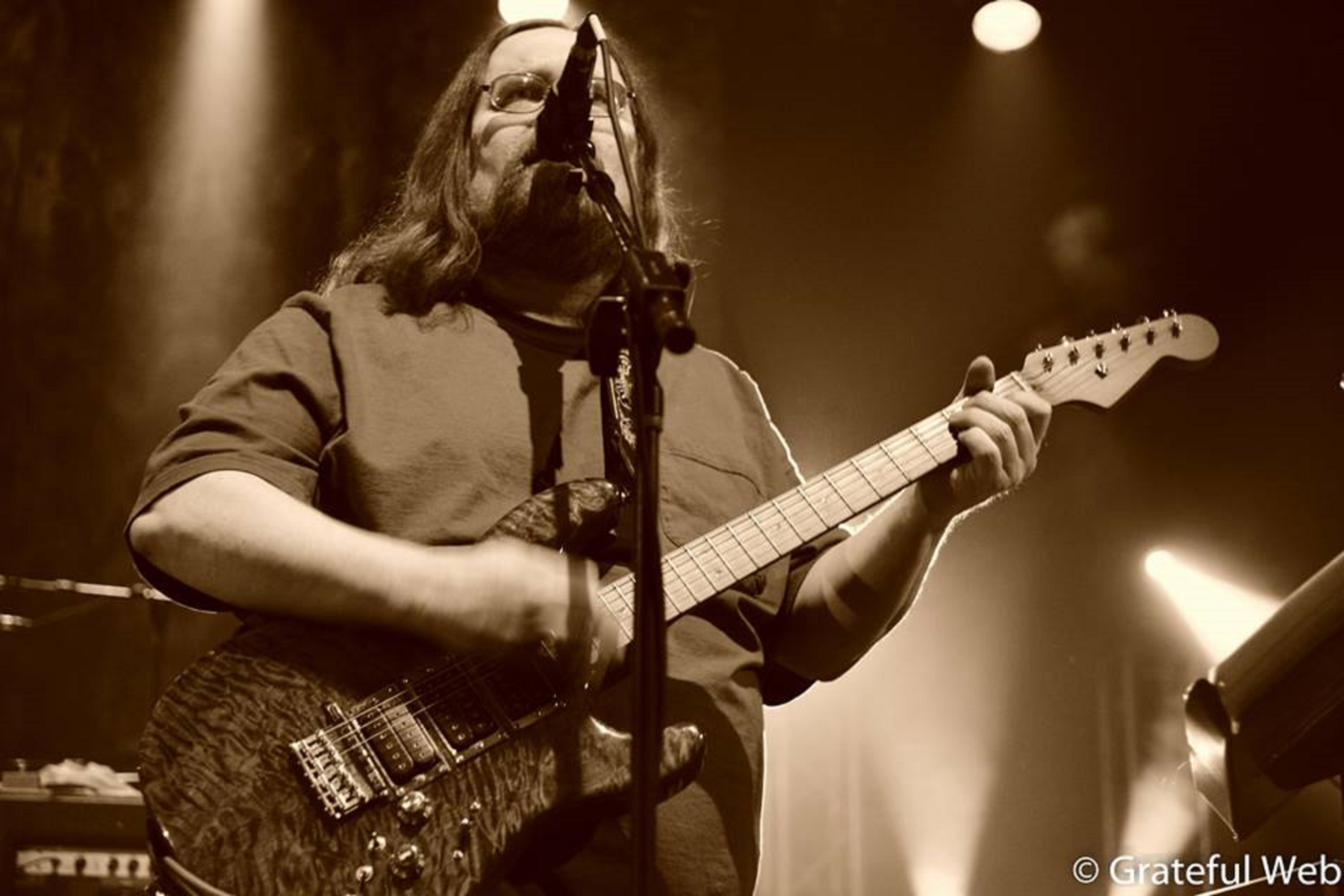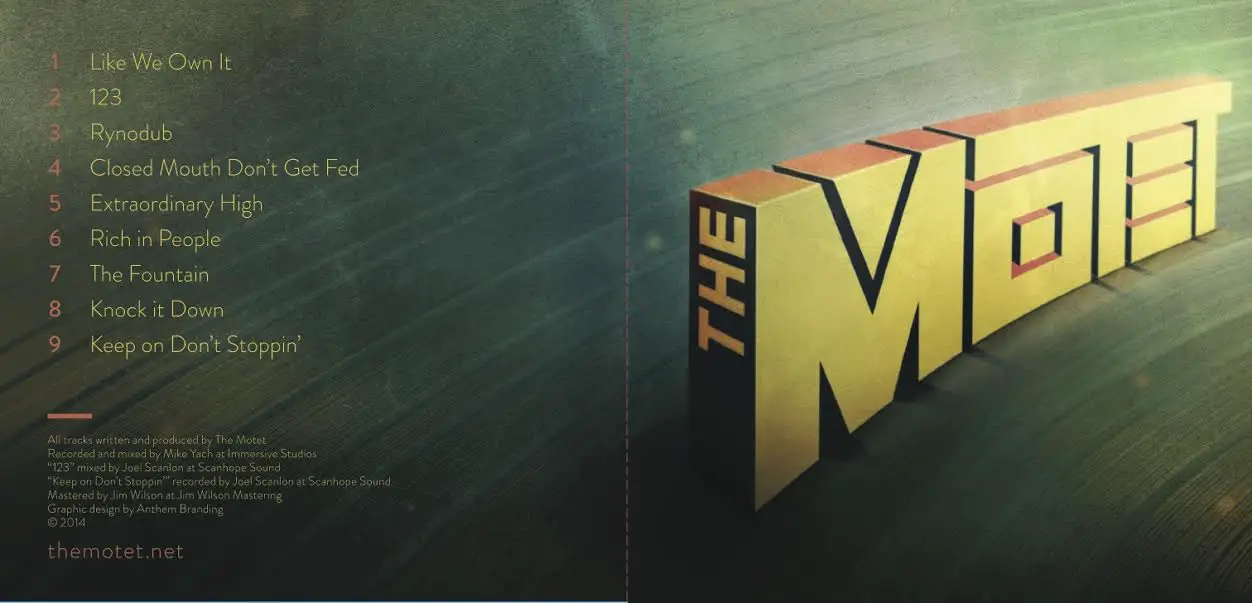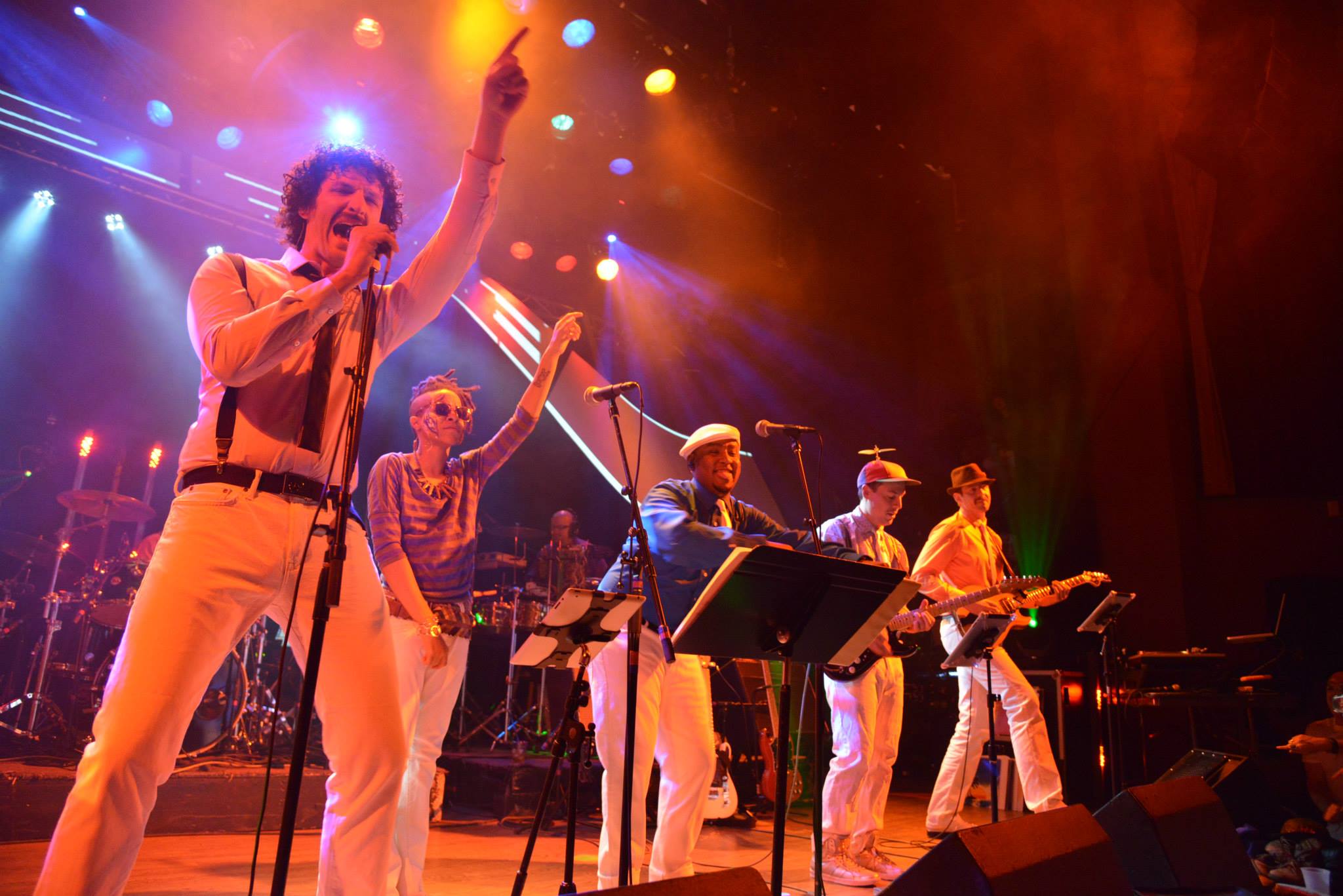Do you believe in augurs? As a bookworm and English teacher, I always look for them in literature and instruct my students to do the same. Omens of good things to come and harbingers of impending doom are common tropes in fiction. But the portents woven into those narratives are intentional and premeditated – mechanisms to clue the reader in to future events. Real life is another matter entirely. Until Saturday night’s Furthur show at 1st Bank Center, I never gave much thought to augurs in the natural world. However…
About ten minutes before the band took the stage, I looked over my shoulder and noticed a small dusting of white powder near the (left) soundboard barrier. But as I turned around, I realized the paltry pile formed a rather long trail – one that finally terminated five feet away. Above the trail’s end, I spotted a man in his late ‘30s who was holding a bag of, what I presumed to be, the rest of his cocaine. As a personal matter, I do not use illegal drugs and often harbor little patience for those who do abuse them. But I still felt compelled to do the neighborly thing, so I went up and notified him about the hole in his bag. What he said in response blew my mind: “Nah, man. That’s not coke. My friend died recently and he wanted his remains to be spread out on the floor of a Furthur show. That way Deadheads could dance on his ashes while he got to share one last party with them and the band.”
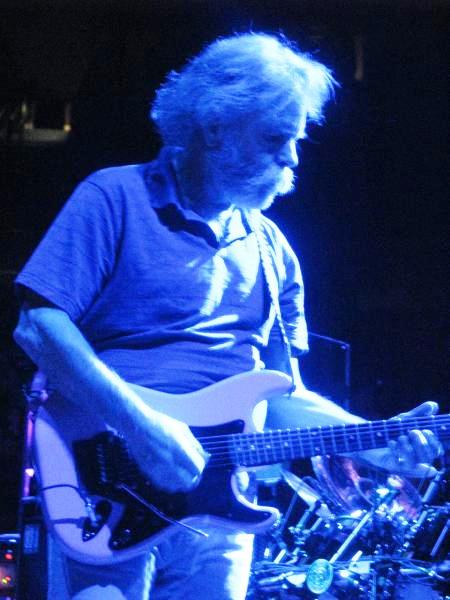
A Keanu Reeves chorus of “Whooooaaaa!” came whooshing out of the mouths of my friends who gathered around by then. My own mouth was agape, but no sound came out – just a little drool after a few seconds. I was in a state of metaphysical stupefaction. The gravity and sheer transcendental awesomeness of his friend’s dying wishes sank in immediately and I just stood there, soaking in the profundity of it all. Some people want their ashes spread out on their favorite run in Jackson Hole or a hallowed surfing spot from childhood. This was a guy who achieved wholeness not on the slopes or waves, but in his natural environs: the show. We were about to dance on the ashes of a fellow Deadhead who wanted one last ride. My friends and I reached the conclusion that this concert would be a cut above your average (read: amazing) Furthur-fest. Clinging to the symbolic value of the ashes, we augured – however irrationally – that this had to be a special show. And while causality could never be established, our prediction eventually manifested into reality.
After opening with a tight The Music Never Stopped, Furthur announced themselves in a major way with an early showstopper: Althea. Jeff Chimenti exploited all seven octaves on his piano during the first solo, galvanizing the crowd into a hypno-dancing frenzy – heads tilted back, eyes closed, floating on a singular cloud. Althea is one of those quintessential Jerry songs that sends shivers down my spine when played well. John Kadlecik’s voice, famously reminiscent of Jerry in timbre and, at times, even rasp, crackled with every verse, underscoring the protagonist’s pangs of consciousness: “I told Althea that treachery / was tearin’ me limb from limb. / Althea told me: now cool down boy / settle back easy Jim”. In the final white-hot crescendo, Kadlecik turned up his flanger pedal tone which modulated beautifully underneath Chimenti’s arpeggios and climaxing waterfall run.
While Furthur does not pretend to be The Grateful Dead, part of its success comes from Kadlecik and guitarist Bob Weir’s ability to lavish the crowd with a vocal imprint from memory’s past. Weir’s voice projects as well, at 65, as it did 25 years ago when The Dead were touring stadiums. Look no further than Looks Like Rain for a prime example of Weir’s frozen-in-time vocal strength. It continued a weekend replete with ballads that insinuated a soul-crushing beauty and pathos into each night.
In the penultimate song of the first set, Furthur married this balladic pulchritude with Ryan Adams’s Peaceful Valley. Sunshine Becker and Geoff Pehrson gave the song its shape with their pitch-perfect harmonies atop Kadlecik’s wailing vocals. More than that, though, the lyrics brought me back to the ashes beneath my feet: “Lord, take me home to the peaceful valley… / Up there in the clouds / In that glorious kingdom / Tell me there ain’t nothing but an easy recline”.
The septet segued into a raucous Touch of Grey to close out a simmering set that, on paper, might look a bit on the slow and dull side. It was anything but.
When Furthur returned, they opened up with a Help on the Way that portended the Help > Slipknot > Franklin’s triptych being threaded through the second set. Help quickly segued into Cassidy. Clocking in at over 11 minutes, the Weir classic showcased five musicians totally invested in listening to, and riffing off of, each other’s unique sound. Phil Lesh anchored the discursive jam with his pulsing bass improvisation. The most impressive part of the whole piece occurred with the abrupt, yet pin-point, deaccelerando from the jam back into the refrain. It was the audio version of watching a gymnast run at full speed, bounce off a springboard, and, despite all the force generated in the process, land a perfect Amanar vault. The band dropped from the crest of that swelling sonic wave down into its trough in a matter of seconds. It was jaw-dropping.
Along with Cassidy, Let It Grow was a highlight of the second set. Even though Weir started the song decisively out of pitch, he recovered and the crowd was treated to a luxurious set of oscillating jams and verses. Phil’s walking bass line braced Kadlecik’s soaring, upper register solo and nimble runs up and down the fretboard. Drummer Joe Russo pounded on his kit with primal strength and desire – even back at the soundboard, I could see his head and neck leaning into the downbeats, underscoring the visceral nature of his style and the muscle he puts into each bar. Chimenti infused his hypnotic blend of rock/jazz piano into the sundry sections of accelerando. His style in Let It Grow hinted very much at Irish piano great Lou Martin (Rory Gallagher).
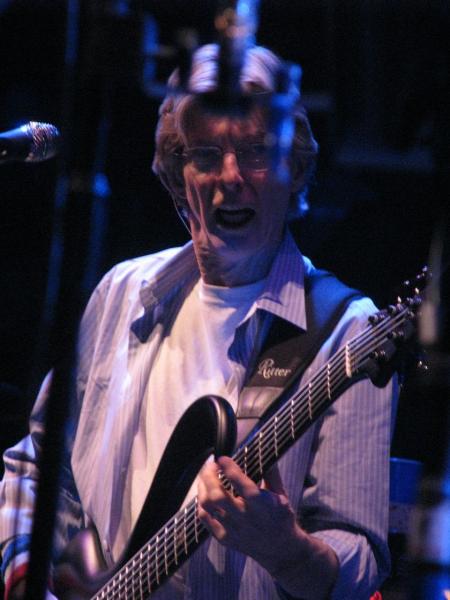
Standing on the Moon lyrically bookended Peaceful Valley from the first set and, during most of the ballad, I found myself staring at the ground beneath my feet: “Standing on the moon / With nothing left to do / A lovely view of heaven / But I’d rather be with you”. I felt weak as Weir belted out the lyrics. I could not imagine what it would be like to draw my last sets of breath and realize that the music I love so dearly is about to be gone forever. And right at that moment – frozen in that train of thought – I realized why there were human ashes beneath my feet. Before the show started, I thought it was a cool idea to have Deadheads dance on this guy's ashes and, in a sense, take part in one more show. But when it comes down to it, he wanted to be buried here. He knew that, realistically, he wouldn’t be able to see or hear the Dead anymore. Just as two spouses may purchase plots next to each other, he wanted to be buried next to one of his true loves. We all want to spend eternity – even if “eternity” is nothing more than a symbolic representation of infinite time and space – with the love, or loves, of our life.
The crowd came alive as Furthur returned to Slipknot for a second time. Russo hammered his tom-driven fills with such force that they were acoustically audible well back on the floor. Franklin’s Tower capped off a superlative second set that, as the ashes of a fallen Deadhead portended, was a cut above its kin. Furthur never fails to pull out all the stops when they come to Colorado but, this time around, eclipsed all expectations for the sandwich portion of their three-night run. The band said goodbye and sent the crowd off into the snowfall with a rip-roaring One More Saturday Night, capping an evening to remember for preternatural brilliance on the stage and a supernatural presence “on the floor”.





